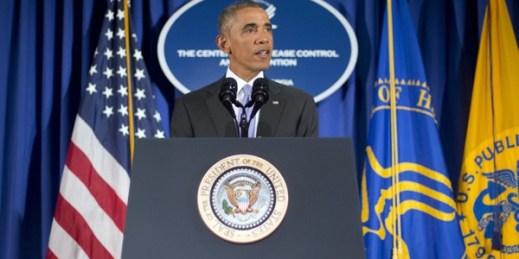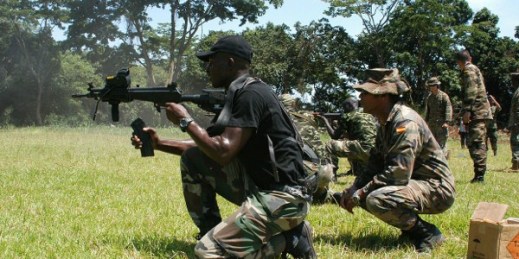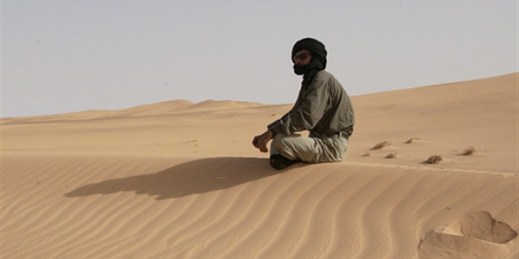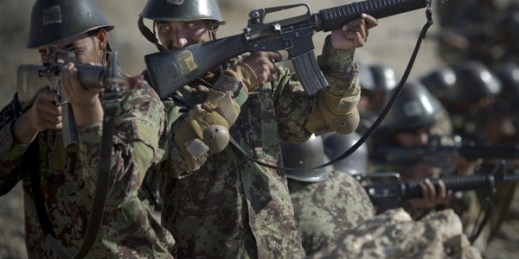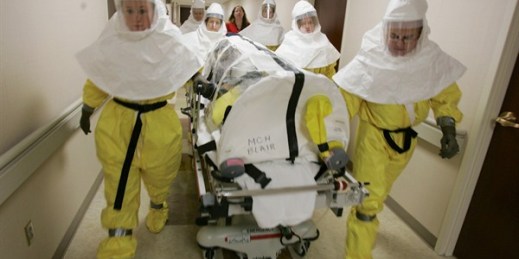
Delta Airlines Flight 217 leaves Leopold Senghor International Airport in Dakar each Wednesday at 11:15 AM, bound for New York’s John F. Kennedy International Airport. During the 8-hour, 25-minute flight, the plane’s passengers can enjoy a variety of movies, have a meal and take advantage of the plane’s WiFi connection in relative comfort. And any one of them could be carrying the Ebola virus to New York, extending the epidemic’s reach to North America. The current Ebola outbreak in West Africa has prompted a wider discussion about the ability of the United States and other industrialized democracies to respond to […]

